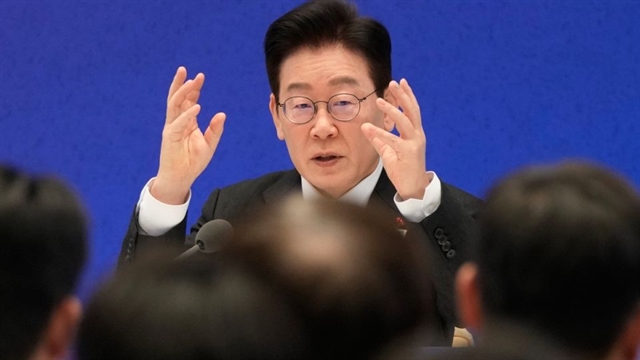LONDON — Former defence secretary Michael Fallon joined calls Monday for more British military spending, as the head of the army said the country may struggle to match Russian battlefield capabilities and another security chief warned a major cyber-attack on the UK is likely by 2020.
Fallon, speaking at the Defence and Security Forum in his first speech since resigning from the Cabinet over a sexual harassment scandal in November, argued for a £1 billion ($1.4 billion) increase in defence funding this year, and raising annual GDP spending on it to 2.5 per cent.
This would give the military an additional £7.7 billion each year, he said, amid a reported £20 billion black hole in the budget for the next decade.
Noting the deficit was falling and spending is on the rise in other priority areas, Fallon said: "So let’s release an extra £1 billion to fire up the defence budget this year, and set 2.5 percent of GDP as our new target for the end of the parliament."
The suggestion came shortly after Chief of the General Staff Nick Carter said in a rare public speech that Russia poses the "most complex and capable" security challenge since the end of the Cold War, and warned against complacency.
Making a high-profile intervention in the growing debate over military spending, he told an audience at the RUSI military think tank in London that "we cannot afford to sit back" in the face of Russian military strength.
The army chief detailed Moscow’s growing military capabilities, which he illustrated with a Russian-language video he described as "information warfare at its best".
That stark message was underlined by another warning Monday from the head of Britain’s National Cyber Security Centre that the country will likely face a major cyber-attack within two years.
Ciaran Martin told the Guardian it was inevitable a hostile actor would launch an online attack aimed at crippling Britain’s critical infrastructure, such as energy supplies, and the country was lucky not to have fallen victim to one already.
"I think it is a matter of when, not if and we will be fortunate to come to the end of the decade without having to trigger a category one attack," he told the paper.
Budget questions
Defence spending in Britain is under intense pressure following years of austerity, and a review launched last year has prompted media reports that further cuts are on the way.
Carter believes Russia has now boosted its capabilities to the extent that Britain may struggle to match them, and could initiate hostilities faster than expected, noting it has already demonstrated its use of superior long-range missiles in Syria.
"I believe our ability to pre-empt or respond to these threats will be eroded if we don’t match up to them now," he said.
The army head likened the current situation to the run-up to World War I: "We, I think, should be careful of complacency, the parallels with 1914 are stark."
"Our generation has become used to wars of choice since the end of the Cold War. But we may not have a choice about conflict with Russia."
Prime Minister Theresa May’s spokesman said Britain was committed to spending two percent of its gross domestic product (GDP) on defence, in line with the target set by members of the NATO alliance.
"The chief of general staff is saying that we face a range of threats, that we need to make sure we have capabilities required to address them. That’s exactly what we’re doing as part of the National Security Capability Review" launched last July, he said.
"And we’re doing that from a position of strength, where we have a £36 billion ($50 billion, 40.9 billion euros) defence budget, which will rise to almost £40 billion by 2020-21."
Defence minister Gavin Williamson, who took over the role in November, has said the capability review would conclude "shortly". — AFP
 World
World





